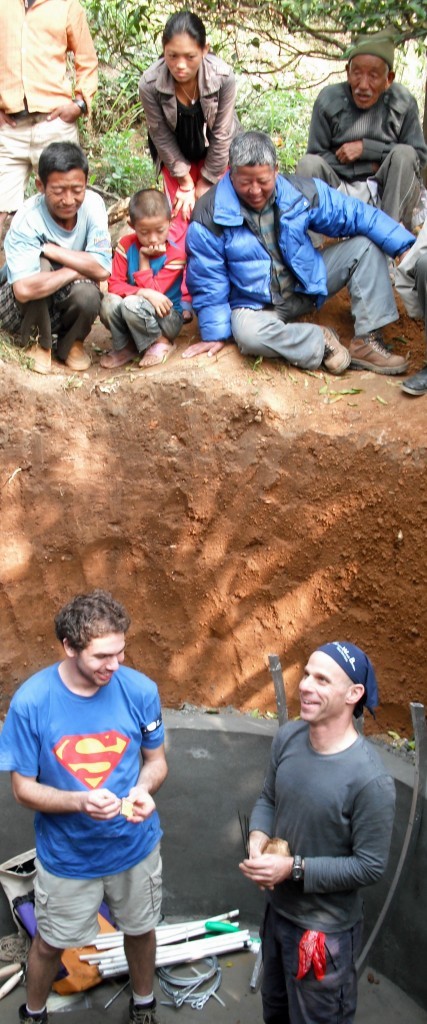Engineers Without Borders, Technion Chapter
What happens when you introduce engineering students to 3rd world communities? Societies change and lives are saved, using engineering. Technion Professor Mark Talesnik, founder of the Israel’s “Engineers without borders” tells us that even “shit” can change the world we live in.
 Continuing this tradition of engineering outreach, the Technion International School and Technion-EWB Chapter, in cooperation with Kathmandu University, has launched an ambitious, pioneering program bringing the world’s brightest science and engineering students forward to solve basic development questions in impoverished and communities in Nepal’s Kathmandu Valley.
Continuing this tradition of engineering outreach, the Technion International School and Technion-EWB Chapter, in cooperation with Kathmandu University, has launched an ambitious, pioneering program bringing the world’s brightest science and engineering students forward to solve basic development questions in impoverished and communities in Nepal’s Kathmandu Valley.
At the same time, students participating in the Engineering for Developing Communities program gain invaluable skills in a variety of subjects as well as practical field experience on the ground, bringing their projects and ideas to life for the benefit of others.
The Technion is at the forefront of Israeli science and the nation’s impressive high-tech, bio-tech and agro-tech industries. But the Technion is also deeply committed to research, development and action in sustainable community development.
Since May of 2008, the Technion has been home to a chapter of the international Engineers Without Borders NGO. Engineers Without Borders is a non-profit humanitarian organization established to partner with developing communities worldwide in order to improve their quality of life.
This partnership involves the implementation of sustainable engineering projects, while involving and training internationally responsible engineers and engineering students.
Prof. Mark Talesnick says, “We teach our students how to think, how to crunch numbers… but nowhere do we teach them anything to do with a social conscience. Nor are we training our graduate engineers as leaders in society.” Now, through EWB, Talesnick offers students “Engineering with a soul,” in hands-on engineering tasks. He says that even small budget projects have a big effect on the community.
“A small push from us can stimulate huge gains for the community and great gains in the development of our engineers,” he says. About 25 students took part in the project and its preparations. A group of three women and three men students together with Talesnick implemented the project on the ground in Nepal.
Hannah Bardin, 27, has been involved in the EWB-Technion initiative since the initial meeting held on campus. “This is a really unique opportunity to combine my engineering education with social values,” says this master’s student who is specializing in water management. She continues, “Being able to apply engineering skills in order to help a community and actually deal with real life engineering challenges was an experience I couldn’t get anywhere else.”
The Technion EWB chapter is actively involved in development projects in Israel’s Negev desert Bedouin community, as well as elsewhere in the Middle East.


